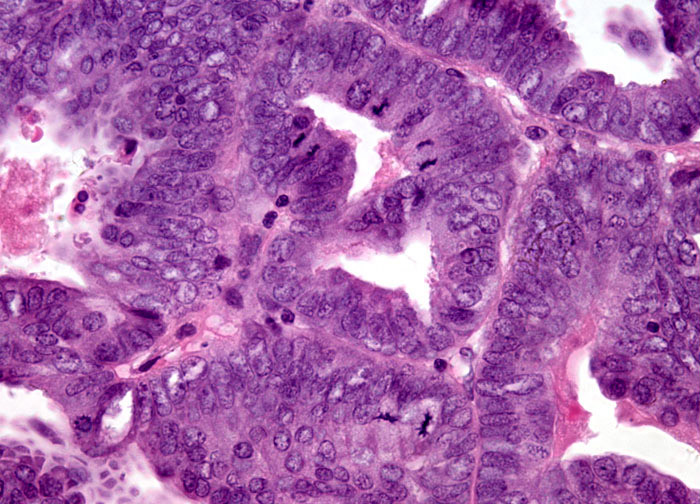
Endometrial Adenocarcinoma at 40x Magnification
The excellent prognosis enjoyed by many patients with endometrial cancer is closely linked to the ability to diagnose the disease before it has advanced very far in its development. Abnormal vaginal bleeding or other discharges are early signs of endometrial cancer and often motivate women to quickly seek medical attention. Other symptoms that may develop, however, are pelvic pain, a palpable mass, and unexplained weight loss. When endometrial cancer is suspected, a biopsy or a procedure known as dilation and curettage, in which tissue is scraped from inside the uterus, is generally carried out in order to ascertain whether abnormal cells are present. A number of other forms of analysis, including blood tests, proctoscopy, cystoscopy, computed tomography (CT) scans, x-rays, and magnetic resonance imaging (MRI), may be utilized to determine the extent of the disease once it is diagnosed.













